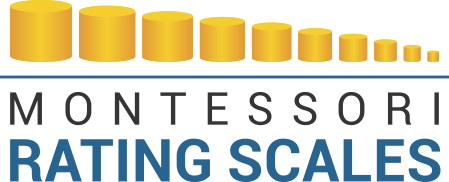MRS-EC-QP (Quality Principles)
The Montessori Rating Scale – Early Childhood – Quality Principles (MRS-EC-QP) is the measurement instrument to evaluate the quality of the Montessori early childhood classroom. With this intent MRS-EC-QP is used by classroom teachers as a self-evaluation tool, by school directors for classroom quality oversight and staff development, by teacher education programs for practicum site placement, and by state and federal agencies evaluating Montessori early childhood classrooms.
The Montessori Rating Scale – Early Childhood – Quality Principles (MRS-EC-QP) is a measurement tool for determining if a Montessori early childhood teacher is conducting a classroom according to Montessori principles, practices and outcomes.
The MRS-EC-QP does not measure other quality issues for a Montessori early childhood classroom. The Montessori Rating Scale for the Early Childhood Environment (MRS-EC-E) is used to measure completeness of the environment and the curriculum, such as material completeness and order which is in the MRS-EC-E.
Items
The MRS-EC-QP is organized into 6 categories with a total of 41 items. The 41 items identify the quality principles of the Montessori early childhood classroom, and student behaviors, that the Head Teacher and Assistant Teacher have established:
– Qualifications of Head Teacher
– Teacher Conduct
– Classroom Organization
– Routines
– Montessori Principles
– Additional Assessments
The Development of the Scale
The development of this scale will go here…
Scoring Criteria
Substandard (1) | Standard (2) | Above Standard (3)
Substandard (1) is defined as not meeting generally accepted Montessori quality principles
Standard (2) is defined as meeting generally accepted Montessori quality principles.
Above Standard (3) is defined as meeting more than accepted Montessori quality principles.
